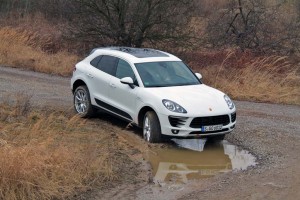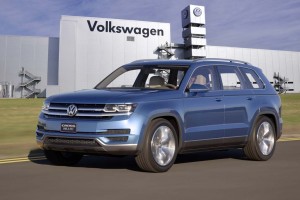As it begins to see its massive diesel scandal fade into the rearview mirror, Volkswagen AG reported Thursday a big jump in third-quarter earnings.
The German maker had a net, after-tax profit of 2.34 billion euros, or $2.55 billion. By comparison, VW went 6.7 billion euros into the red a year ago as it set aside funds to cover fines and legal costs triggered by the revelation it had rigged emissions tests on its 2.0- and 3.0-liter diesel engines.
On Tuesday, a judge in San Francisco gave final approval to a nearly $15 settlement with U.S. and California regulators covering the smaller of the two powertrains. That includes up to $10 billion to buy back the 475,000 Audi and Volkswagen brand vehicles sold in the U.S. using that engine. VW says buybacks are likely to begin by mid-November, though the maker still hopes to come up with a technical fix for at least some of those vehicles.
(For the latest on the diesel settlement, Click Here.)
Separately, Volkswagen plans to reveal an all-new midsize SUV at a splashy media event in Santa Monica on Thursday evening. Based on the popular CrossBlue concept, it will be the first of two new utes from the automaker, and will be produced at the VW assembly plant in Chattanooga, Tennessee.
Together, they will fill a yawning gap in the VW brand line-up that has become ever more obvious as, in recent years, motorists by the millions have migrated from sedans, coupes and wagons to crossover and sport-utility vehicles.
The lack of a competitive ute line-up is one of the reasons why the VW brand itself lagged behind other marques in the broader Volkswagen Group this past quarter. Operating profits dropped to 363 million euros, or $396 million, for the latest quarter, down from 801 million euros a year earlier. That fell short of the consensus forecast of 462 million.
The brand was also hurt by a brief dispute with key suppliers that caused production delays on some VW models. VW has also been struggling with high, home market labor costs and production complexity issues. It has been working with its unions to find acceptable ways to cut costs, including the reduction of its large German workforce.
Though he is recommending the stock on expectations of further cost reductions, Evercore ISI analyst Arndt Ellinghorst warned that, “VW has maneuvered itself into a cost and complexity situation that needs to be solved.”
(Check out our first drive in the 2017 VW Alltrack. Click Here for the story.)
The VW brand also has to continue resolving its diesel emissions issues. While the $14.7 billion settlement covers the 2.0-liter diesel rigging, it has yet to come up with a similar deal for the bigger 3.0-liter engine. The eventual settlement is expected to be substantially smaller, in part, due to the fact that far fewer of those high-end engines were sold in the U.S.
Almost all of the smaller turbodiesels were sold under the VW badge, but a number of the 3.0-liter powertrains were market through Audi and Porsche. So far, however, analysts say those brands have suffered little, if any, fallout from the scandal.
Porsche, in fact, reported a major surge in earnings during the July-through-September quarter that offset the VW brand downfall. Much of that, in turn, was driven by strong demand for the performance-oriented brand’s newest SUV, the Macan.
Even as it looks for ways to cut costs, VW AG is looking at major investments that it will need to make in alternative powertrain technology. As it phases back its diesel lines it is pushing heavily into electrified drivetrain technology, the Volkswagen brand alone expecting to have 30 battery-powered models on the road within the next decade.
But the carmaker said it sees upside for the near-term, and it now expects that sales revenues for all of 2016 will match year-ago levels, rather than suffer a 5% decline, as previously forecast.
(Are these VW’s electric cars of the future? Click Here for details.)



